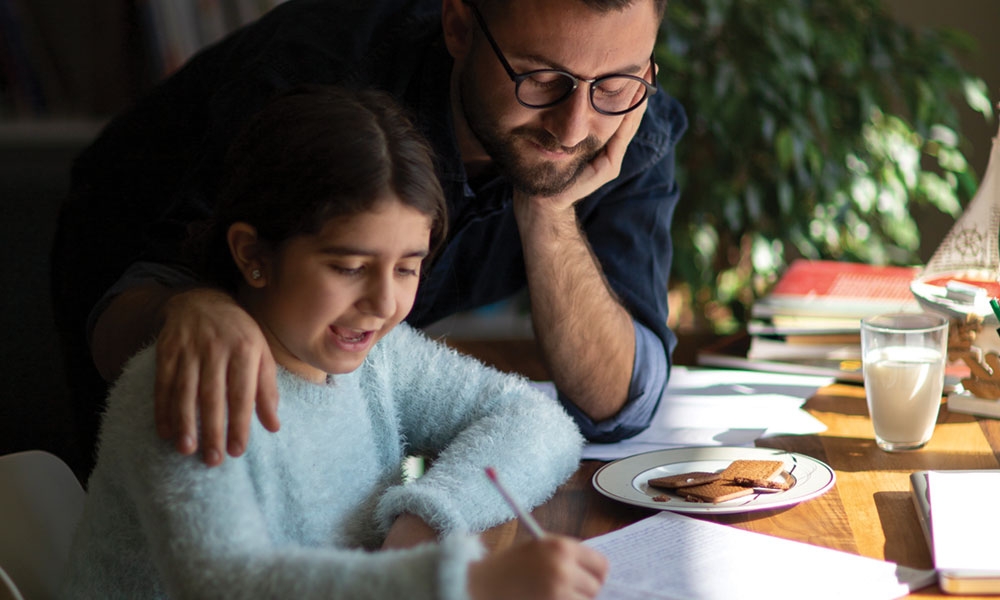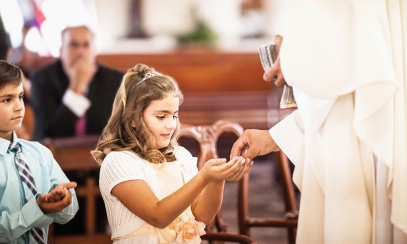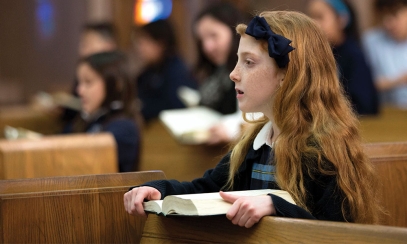
Where does the buck stop?
Who is responsible for teaching our children?
Who is responsible for teaching our children?
Getting your Trinity Audio player ready...While outsourcing is common practice in modern business, our responsibility as the primary educator of our children is a terrible place to apply the practice. We’ve all heard the phrase “It takes a village to raise a child,” and there is truth and wisdom to the statement, but, as parents, we must be the unmistakable leader of the village! Parents serving as primary educators is a practice the Catholic Church speaks of in a powerful way when she reminds us, “Since parents have given children their life, they are bound by the most serious obligation to educate their offspring and therefore must be recognized as the primary and principal educators.” (Gravissiumum Educationis, 3) Considering the importance of this idea, I humbly offer these thoughts and practices to help you embrace this crucial role of creating disciples and raising saints.
While outsourcing is common practice in modern business, our responsibility as the primary educator of our children is a terrible place to apply the practice. We’ve all heard the phrase “It takes a village to raise a child,” and there is truth and wisdom to the statement, but, as parents, we must be the unmistakable leader of the village! Parents serving as primary educators is a practice the Catholic Church speaks of in a powerful way when she reminds us, “Since parents have given children their life, they are bound by the most serious obligation to educate their offspring and therefore must be recognized as the primary and principal educators.” (Gravissiumum Educationis, 3) Considering the importance of this idea, I humbly offer these thoughts and practices to help you embrace this crucial role of creating disciples and raising saints.
Understanding the role:
At the core of our role as parents lies the obligation to be the primary teacher and example of intellectual, moral, and social learning. Many people will play a role in each of these areas, but the parents are the CEO of these things throughout their child’s life.
Witness:
It is our great privilege as parents to teach and demonstrate discipleship and Gospel living. The greatest teachers talk about the important things and then demonstrate them in their own lives.
Partnerships:
Whether a child attends Catholic school, public school, or is homeschooled there will be many influences in their formation and education. Even though there will be other teachers, coaches, and mentors, parents must communicate and participate so they have a clear understanding about what kids are hearing and seeing so they can correct, redirect, or disconnect. The job of primary educator is ongoing, and they truly need us to have our eyes and ears tuned in.
Speak truth:
Our children are going to experience different opinions, attitudes, and behaviors; how we teach them to navigate these can offer powerful Gospel lessons. No matter what they hear or see, our job is to approach it with truth. Kids need to understand why we believe and follow the teachings of the Gospel and the Catholic Church. They will question, and the best answer is the truth. Phrases like “as Catholics we believe … or in this family we do this… or we try to live our life according to Jesus’ teaching so …” can help make the point that our concern is for them not to judge or condemn someone else. My mom used to say, “Sheri, I’m in charge of you, not the rest of the world.”
The big 5:
These five practices are anchors that root us firmly in our God-given responsibility to be the primary educator of our children.
1) Prayer, with and for our children. 2) Mass attendance, the grace and strength of the Eucharist is life-changing. 3) Reading and learning with Scripture and faith-based materials. Whether it’s stories from the Children’s Bible, resources about saints, or things that teach Catholic truth, we need to be hungry for truth and knowledge. 4) Modeling, our actions speak so much louder than our words, so model ethical, morally sound, and gospel-based attitudes and actions. 5) Talk and pray about the struggles, joys, and challenges of living as a disciple. Our faith is primary, and talking about it should be common and comfortable in our homes, so our kids realize how important it really is.
Sheri Wohlfert is a Catholic wife, mom, grandma, speaker and writer. Catch her blog at www.joyfulwords.org.



